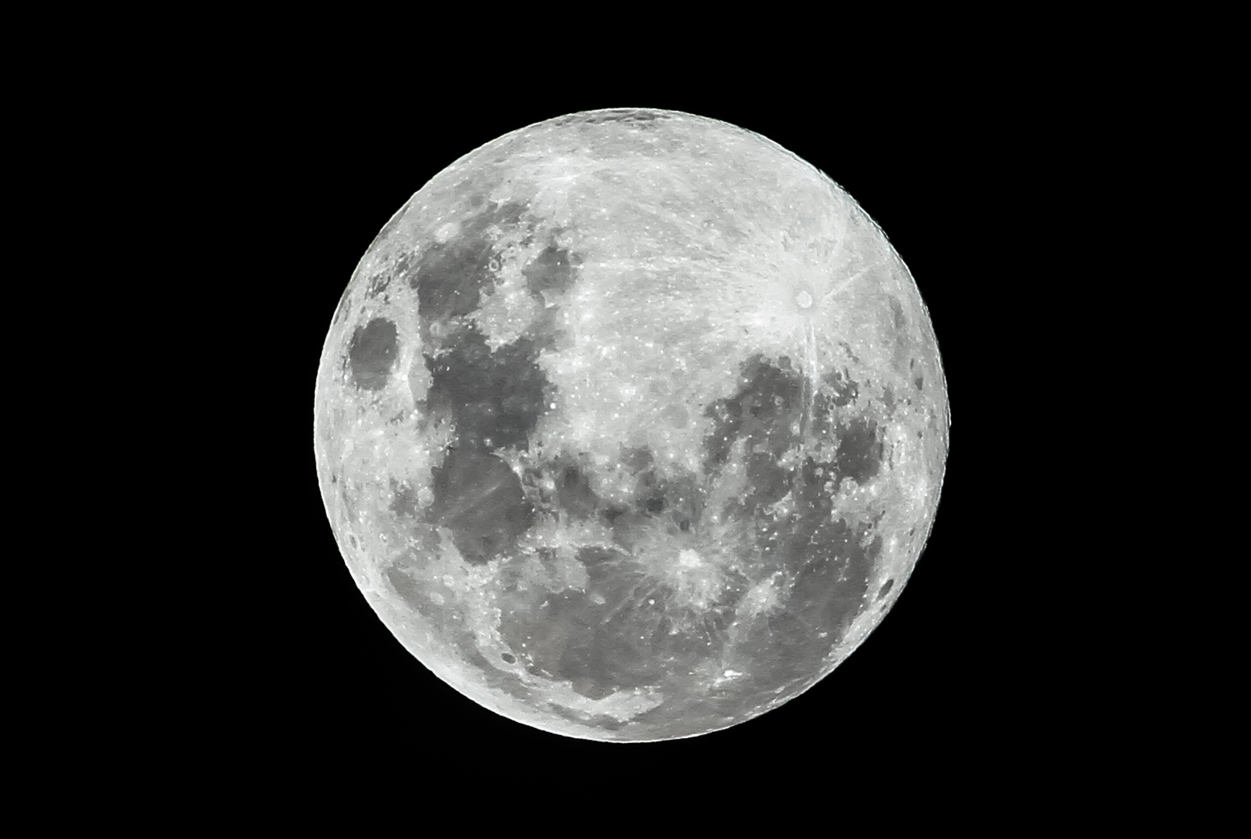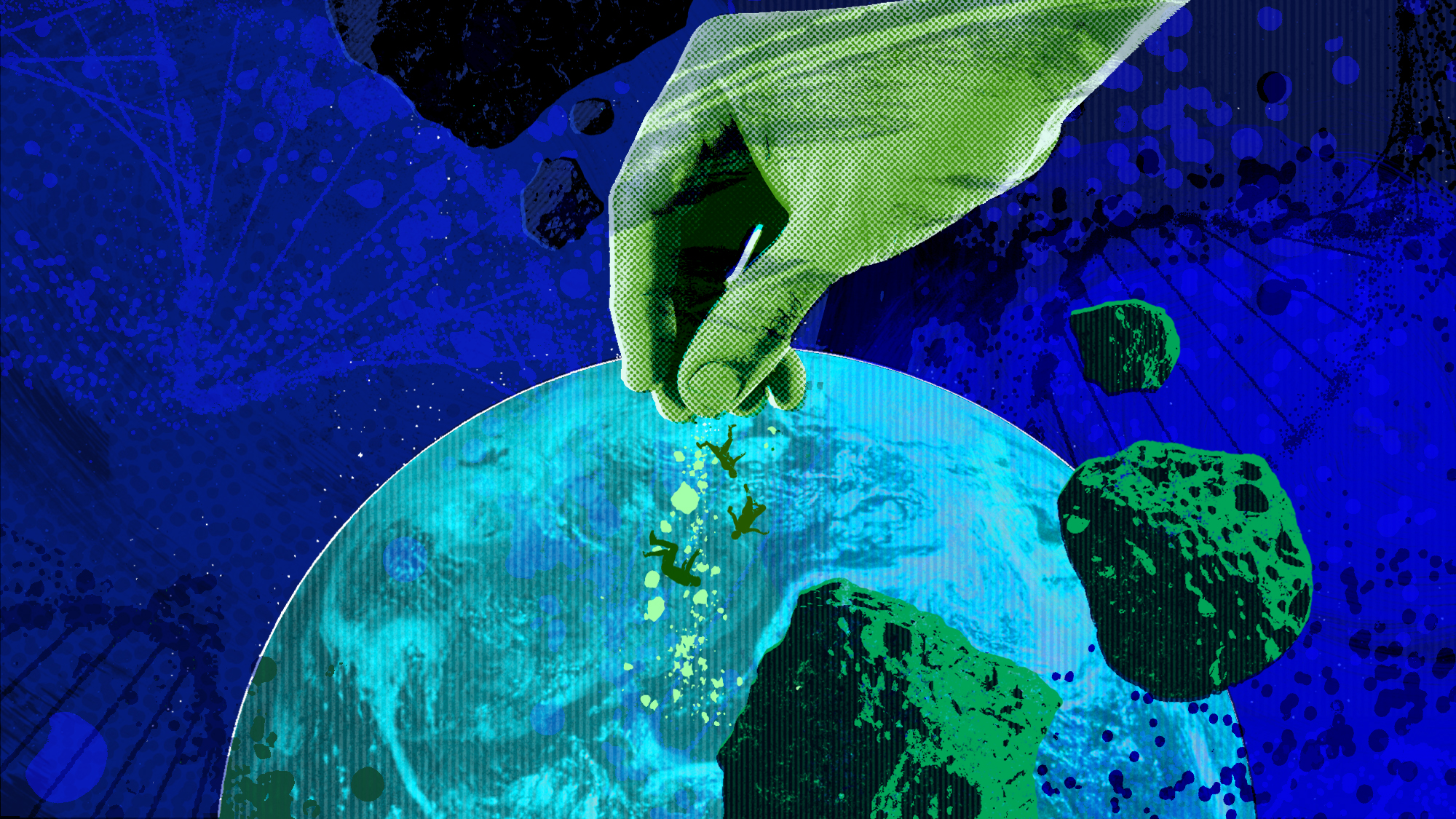The moon is quaking

A free daily email with the biggest news stories of the day – and the best features from TheWeek.com
You are now subscribed
Your newsletter sign-up was successful
For a long time, we've thought of the moon as one solid chunk of rock out in space. But recent analysis of data from NASA's Apollo missions is posing an interesting question that has geologists scratching their heads: What if it has tectonic plates just like the Earth?
In a study published in Nature Geoscience on Monday, scientists took a closer look at data of "moonquakes" picked up by seismometers at Apollo landing sites from 1969 to 1977. While these have been a mystery for a long time, the new analysis suggests that the moon is "actually more tectonically active than previously presumed," National Geographic reported.
This is a startling discovery because tectonic plates only shift, causing tremors and faults in the ground, when the interior of a planet — or satellite, in the case of the moon — is very hot. And since the moon is way smaller than the Earth, just a sixth of its size, we've long thought that its core is much cooler than ours. A cooled center would mean little to no tectonic activity, so scientists have been puzzling out what other factors could have caused a tremor that seemed like a moonquake.
The Week
Escape your echo chamber. Get the facts behind the news, plus analysis from multiple perspectives.

Sign up for The Week's Free Newsletters
From our morning news briefing to a weekly Good News Newsletter, get the best of The Week delivered directly to your inbox.
From our morning news briefing to a weekly Good News Newsletter, get the best of The Week delivered directly to your inbox.
But for this study, researchers simulated how often those other factors could align to cause something even resembling a moonquake, and ended up with odds of about 1 percent. So it's much more likely that the 28 major quakes picked up back in the 1970s were caused by tectonic activity, changing the way we think about the moon from here on out.
"The whole idea that a 4.6-billion-year-old rocky body like the moon has managed to stay hot enough in the interior and produce this network of faults just flies in the face of conventional wisdom," said Thomas Watters, one of the study's co-authors. That makes this new discovery "an amazing result."
A free daily email with the biggest news stories of the day – and the best features from TheWeek.com
Shivani is the editorial assistant at TheWeek.com and has previously written for StreetEasy and Mic.com. A graduate of the physics and journalism departments at NYU, Shivani currently lives in Brooklyn and spends free time cooking, watching TV, and taking too many selfies.
-
 6 of the world’s most accessible destinations
6 of the world’s most accessible destinationsThe Week Recommends Experience all of Berlin, Singapore and Sydney
-
 How the FCC’s ‘equal time’ rule works
How the FCC’s ‘equal time’ rule worksIn the Spotlight The law is at the heart of the Colbert-CBS conflict
-
 What is the endgame in the DHS shutdown?
What is the endgame in the DHS shutdown?Today’s Big Question Democrats want to rein in ICE’s immigration crackdown
-
 The 5 biggest astronomy stories of 2025
The 5 biggest astronomy stories of 2025In the spotlight From moons, to comets, to pop stars in orbit
-
 Blue Origin launches Mars probes in NASA debut
Blue Origin launches Mars probes in NASA debutSpeed Read The New Glenn rocket is carrying small twin spacecraft toward Mars as part of NASA’s Escapade mission
-
 Dinosaurs were thriving before asteroid, study finds
Dinosaurs were thriving before asteroid, study findsSpeed Read The dinosaurs would not have gone extinct if not for the asteroid
-
 Panspermia: the theory that life was sent to Earth by aliens
Panspermia: the theory that life was sent to Earth by aliensUnder The Radar New findings have resurfaced an old, controversial idea
-
 SpaceX breaks Starship losing streak in 10th test
SpaceX breaks Starship losing streak in 10th testspeed read The Starship rocket's test flight was largely successful, deploying eight dummy satellites during its hour in space
-
 Rabbits with 'horns' sighted across Colorado
Rabbits with 'horns' sighted across Coloradospeed read These creatures are infected with the 'mostly harmless' Shope papilloma virus
-
 Lithium shows promise in Alzheimer's study
Lithium shows promise in Alzheimer's studySpeed Read Potential new treatments could use small amounts of the common metal
-
 Scientists discover cause of massive sea star die-off
Scientists discover cause of massive sea star die-offSpeed Read A bacteria related to cholera has been found responsible for the deaths of more than 5 billion sea stars